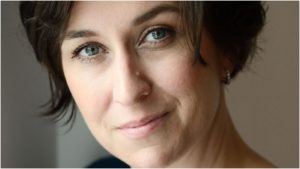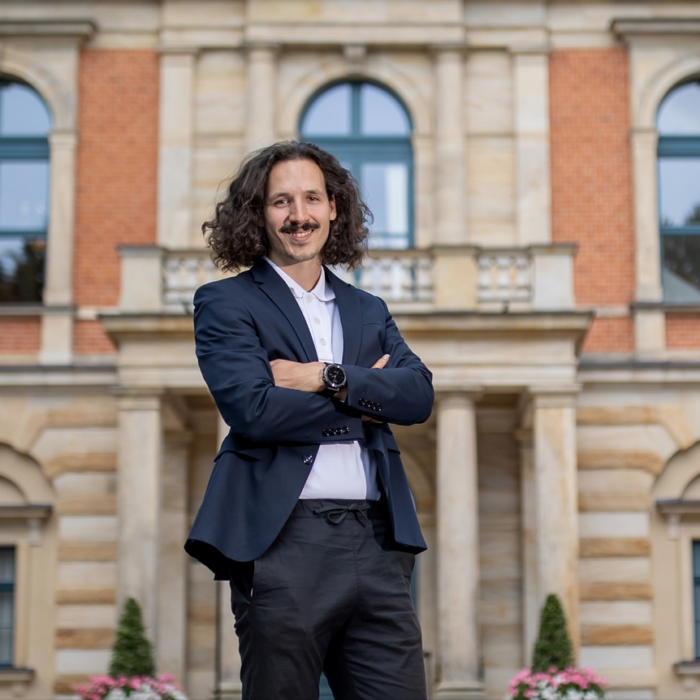
Q & A: Mezzo Michèle Losier On Her First Rossini Role & Edinburgh Festival
By Francisco SalazarSince her debut in 2002, Michèle Losier has become one of the most in-demand mezzo-sopranos in the world. She has garnered acclaim in numerous roles and has performed on some of the world’s greatest stages including the Metropolitan Opera, Teatro alla Scala, San Francisco Opera, Salzburg Festival and Théâtre des Champs-Élysées, among others.
This month Losier sings at the Edinburgh Festival and OperaWire had a chance to speak with the mezzo-soprano about her experience with the festival and taking on her first Rossini role in “La Cenerentola.”
OperaWire: What excites you about performing at the Edinburgh International Festival?
Michèle Losier: The Edinburgh Festival is the first international classical Festival I was ever exposed to during my studies when I was 20. I had the opportunity to see one concert and to spend a week in the city and I was in awe and I set a goal that I would come back to sing there! And last year, I had the honor to sing in “La Damnation de Faust” with the Hallé and Sir Mark Elder. This time I am fortunate to be able to be here for a little longer and perform a wonderful opera role! I cannot be more grateful!
OW: How does it compare to the other summer festivals?
ML: It is a prolific festival! And if we include the Fringe experience, one can find EVERYTHING and ANYTHING they want. You find not only quantity but QUALITY from the conductors to the musicians to the beautiful coherent mixture of musical choices.
OW: You’ll be performing the title role in Rossini’s “La Cenerentola.” Tell me about how the role has evolved for you?
ML: Last year, it was the biggest challenge I had encountered in my career. I have never sung Rossini as I never could feel at ease in the repertoire. I accepted the challenge with Opera de Lyon because I wanted to prove to myself that I could overcome any flaws whether it was technical or physical! I had the best time of my career realizing I was able to not only make it happen on stage but actually enjoy it! I am looking forward now to singing it for the second time as it will be more comfortable but I will be able to further some technical difficulties and hopefully master more parts of it.
OW: What are the challenges of Rossini’s opera?
ML: For me, as it is not for every singer that sings Rossini, the speed of the coloratura can be a challenge in some pages of the score! I have been fortunate to work with Maestro Montanari who actually works with my voice, my strengths and can turn my flaws into qualities! This is the first Rossini role I sang, but I might sing Rosina in future seasons. “La Cenerentola” actually sits low for the register and demand as well a few high notes. I am very demanding of myself which sometimes interferes with the pleasure of singing. I have to find that balance otherwise I won’t have any satisfaction.
OW: What are your favorite moments in the piece?
ML: My favorite part is the most challenging one vocally! The moment where she appears disguised as a princess, with a veil. I LOVE the exposure of the vocal line and it makes it a nervous and challenging moment. It is two pages of music, the most difficult for me and yet, the most thrilling! One has to love the hard parts otherwise you never own them! That is also the secret to also sing better, loving the challenging “pages of music” in order to make them better!
OW: How do you view your relationship with the sisters and stepfather in the work?
ML: There is love and hate! Those feelings always co-exist. As with the stepfather, one always wants to be loved and accepted, so it is hard to break away from that even if a parent (or non-parent) is not nice. It is a scheme we see in many families whether it is blood relatives or not.
OW: Tell me about Stefan Herheim’s production and what new viewpoints it brings to the work? He’s known for very radical takes on productions.
ML: I wouldn’t say “very” radical, nonetheless he has been trying to find truth. So maybe instead of being the “dreamy” fairy tale, it is the “real” fairy tales with a realistic ending! Nobody ends up fooled and it is not the “they get married happily and make billions of kids” ending! In that way, yes, it is radical, but isn’t it more honest? We can still dream and have a great time looking and listening to the fable and at the end, we are brought back to reality realizing we still laughed and were entertained. That is life!
Herheim’s is a wonderful director with very clear and original ideas. It makes a solid structure for the interpreters and he can lead anyone into that zone where the show will be GREAT not good, but GREAT!
OW: Tell me about your colleagues in particular conductor Stefano Montanari. What does he bring to the music and what does he add to your interpretation?
ML: I was most privileged having all these great colleagues surrounding and supporting me! Everyone has been working hard and having lots of fun even if it is highly demanding physically for everyone. Maestro Montanari has been the most precious help. He is a real “listener” and can predict exactly what the voice will do! He follows the singers like I have rarely seen and that made all the difference for me as I was singing my first Rossini. He was able to help me with the interpretation, giving me insights and inputs, and letting me be romantic without compromising the style. He also plays with the orchestra, trusting all of them in their capabilities. It is truly a joy to have a conductor that open but also seeing all the pleasure he gets from making music WITH all of us!
OW: Finally, what excites you about performing Rossini’s music?
ML: I have to say that I love comedy!!!! So, Rossini, especially here, is all about comedy, and comedy is about timing! Herheim’s mastered the staging of the comic timing and I believe I can say we are ALL having fun singing and playing that show!


